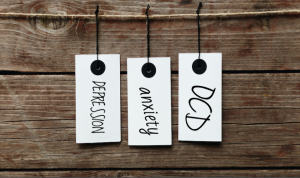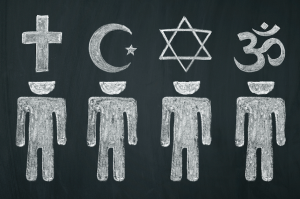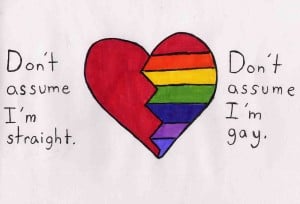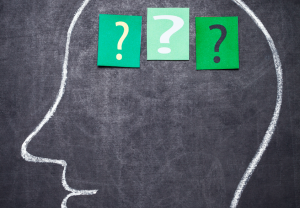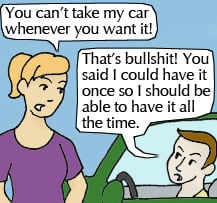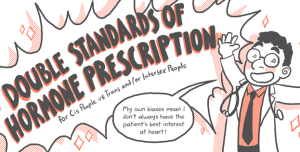When I was first diagnosed with depression as a nineteen-year-old college freshman, I felt an emotion you might not associate with getting diagnosed with a mental illness: relief.
I was relieved that it was actually a real illness and not just a personal fault. I was relieved that there was treatment available for something I thought was just my burden to carry for life. I was relieved to have the language for the background noise of hopelessness, sadness, and pessimism that I had experienced for as long as I could remember.
Not everyone agreed.
Concerned loved ones questioned my decision to accept the diagnosis and use it as a personal identifier when relevant. They worried that thinking of myself as a person who has depression would prevent me from taking responsibility for recovery, or that telling others about it would cause them to judge me and abandon me.
Many people wondered why I needed to concern myself with labels at all. Couldn’t I just go to therapy, take my medication, and leave the technical words out of it?
Actually, I don’t think I could.
Identifying with the label “depression” has helped me in a number of ways, both with recovery and with coping with the symptoms that I still have.
Here’s how.
1. Finding Helpful Information About Mental Illness
The most basic way that mental illness labels have helped me is that they’re a great way to find information about mental illness.
Sounds obvious, right?
But many people who disparage labels don’t realize that you’ll probably find a lot more useful stuff if you Google “how to cope with depression” than “how to stop feeling sad” or “what to do when you feel numb.”
When I was first learning about mental health – both in general and mine specifically – I looked up a lot of things online and read a lot of books.
My searches led me to life-changing perspectives like Andrew Solomon’s The Noonday Demon, which helped me understand different ways in which depression can manifest itself, and Peter D. Kramer’s Listening to Prozac, which helped me feel much less ashamed about needing to take medication.
These books have “depression” and “antidepressants” in their subtitles, and I wouldn’t have found them without knowing what to look for.
Many people first realize they might have a mental illness by looking at simple, nonjudgmental websites like WebMD, Mayo Clinic, or even Wikipedia.
Unlike some of the people in our lives, these websites won’t tell you that “it’s all in your head” or “other people have it worse.” They present scientific information in a way that’s easy to understand and relate to.
But in order to end up on one of these pages, you generally need to have a diagnosis in mind.
Even if you’ve already been diagnosed and started treatment, knowing your diagnosis can help you find information that’ll help your treatment.
For instance, if you’re looking up information about borderline personality disorder, you might learn that dialectical behavior therapy is one of the best treatments for it. This can help you find therapists who specialize in DBT, join groups that use it, and learn some techniques on your own.
2. Reducing Self-Blame
Many people with mental illnesses internalize their issues and blame themselves.
We start to think, “Maybe I’m just not trying hard enough to be happy” or “I have no reason to feel this anxious.”
Simply recognizing the fact that we have certain symptoms isn’t necessarily enough to prevent that sort of self-blame.
A mental illness label helps create some separation between our symptoms and the rest of our personalities and our selves.
While I don’t personally find it helpful to view my depression symptoms as totally separate from me, as if they’re an intruder taking up space in my brain, those symptoms also aren’t the whole story about who I am.
When I can tell myself “I am a person who has depression” rather than “I am a person who gets really, really sad,” I’m able to remind myself that I’m really not choosing to be really, really sad – because it’s an illness that I have.
3. Helping Others Understand Me
Before I knew that I had depression, I struggled to try to explain to people why I felt the way I felt and acted the way I acted.
“I guess I just take things really personally sometimes,” I would say. “Sometimes I get really sad for hours and nothing seems to help.”
I always felt as though I had to apologize for what I believed were annoying quirks.
After I was diagnosed with depression, I started to find the language to explain my experience to close friends, partners, and family members.
I could say, “I have depression and that causes me to ruminate over negative thoughts for hours” or “My depression makes it hard to have hope for the future.”
Of course, that’s only the beginning of what’s often a complicated conversation. It’s never easy to explain mental illness to people who have never experienced it themselves and feel scared or frustrated by what I’m going through.
But it’s a lot easier when I have the right words.
4. Improving My Self-Image
When people claim to oppose “labels,” they tend to forget the fact that, as social creatures, humans need to communicate and we’ll use words (including adjectives) to do so.
Even if you choose not to “label” yourself, others will do it for you.
It’s not like I had no labels before I started to use the label “depressed” to describe myself. I did. The labels people used to describe me included words like “over-emotional,” “over-dramatic,” “crazy,” “self-centered,” “aloof,” “bitchy,” and a whole lot of others that are significantly less flattering than “depressed.”
And I internalized these labels and started to see myself that way, too. People said I had a “crappy personality,” and I believed them.
After I was diagnosed with depression, I started to understand that chain of cause-and-effect: My illness caused symptoms that caused behaviors that caused those perceptions.
For what it’s worth, I still don’t think those labels were fair, regardless of what was causing them – they were cruel and not intended in a constructive way.
But at least now I understand why people were perceiving it that way, and why that wasn’t who I really was.
5. Finding Solidarity with Others
This is probably the most important way that mental illness labels have helped me – because without it, I never would’ve recovered at all.
When people label themselves, they create communities around those labels.
LGBTIA+ identities are an obvious example of how this works, but it’s not the only one.
“I get really sad sometimes and need to sleep too much and have no hope for the future and tend to interpret things in a negative light without evidence” doesn’t really work as a search term or blog post tag.
“Depression” does.
The communities that form around mental illness labels can be incredibly supportive and powerful.
For example, in the depression subreddit, people post about their experiences, and threads quickly fill up with dozens of supportive comments. On Tumblr, people use tags to find others who are dealing with the same mental illnesses.
And that’s to say nothing of offline support groups, which, like online ones, are much easier to find if you have a specific label in mind.
I’ve encountered fellow mental health professionals who are concerned about these communities and believe that the people in them are “over-identifying with the illness” or somehow preventing each other from recovering.
I understand their concern. But in my experience, people are much more at risk when they don’t have any connection with others who are going through similar things than when they have too much of it.
***
Again, I want to emphasize that these are my own experiences (albeit ones shared by many others I’ve spoken to). My aim is not to convince you to use mental illness labels if you don’t want to. My aim is to convince those who claim that these labels are inherently useless or harmful that that’s not necessarily the case.
There are plenty of reasons why people might choose differently than I did and not adopt these labels, even if they’re diagnosed with a mental illness.
For many people, the history of mental illness labels in medicalizing and pathologizing the experiences and identities of marginalized people – such as women, LGBQ people, trans and gender non-comforming people, asexual people, and people of color – is enough to make them want to stay away.
That’s a valid choice, and I would never deny the reality of that history or its continued impact.
For others, it’s just not as useful as it’s been for me.
The people around them might not respond any better to hearing that they’re “depressed” than to hearing that they “just get really sad a lot.” The resources they Google might not be helpful. They might still blame themselves. They might blame themselves even more when they think of themselves with those labels.
Different things help different people, so if mental illness labels don’t help someone, they certainly don’t have to use them.
For some people, openly identifying with these labels is still very dangerous. It’s not exactly perfectly safe for anyone, because mental illness stigma is alive and real even in 2015, but it can be especially dangerous for some because of their jobs, families, or other intersecting identities.
Point is, please do not use this article to try to persuade people to use mental illness labels, because that would make me sad. Assume they have their reasons for not using them.
Please do use this article next time you hear someone spouting lines like “Labels are for soup cans” and “Why do you need all these fancy words to describe yourself?”
Language is powerful. And for me, the language of clinical depression shifted my thinking from “I’m a Debbie Downer with a terrible personality” to “I’m struggling with a serious illness that can get better.”
When it comes to recovery, that made all the difference.
[do_widget id=’text-101′]
Miri Mogilevsky is a Contributing Writer for Everyday Feminism and a recently graduated with a Masters in Social Work and is starting a career as a counselor in Columbus, Ohio. She loves reading, writing, and learning about psychology, social justice, and sexuality, and is working on her cat photography skills. Miri writes a blog called Brute Reason, rants on Tumblr, and occasionally even tweets @sondosia.
Search our 3000+ articles!
Read our articles about:
Our online racial justice training
Used by hundreds of universities, non-profits, and businesses.
Click to learn more


